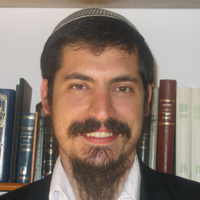Beit Midrash
- Shabbat and Holidays
- The High Holidays
- Yom Kippur
Repentance is one aspect of personal freedom. Judaism teaches that repentance creates a new person so to speak. There is nothing more difficult in life than remaking one’s self. We are troubled by what our families or our former friends will say about this new self that we project. It is difficult to adjust to a new person, even if the new person is the person itself. Therefore Rabbi Yisrael Lipkin of Salant stated that the loudest noise heard in the universe is that of a habit being broken. Physical addictions are terribly dangerous and difficult in the extreme to overcome. Such an addiction is a brutal form of slavery, especially since most such addictions are self inflicted. But mental and spiritual addictions are just as dangerous and brutal. People are very reluctant to alter preconceived notions and their behavior patterns. The Talmud shrewdly states that after a time slaves become passive and seemingly satisfied with their role in life and comfortable in the lack of accountability and responsibility that this state of being engenders. Personal freedom always comes with a price to be paid for it. The price is the willingness of a person to remake one’s self no matter what others in society will think about it. Yom Kippur allows one to begin this process of self emancipation and to state openly to God and to ourselves that we are determined to become a new, different and better person. Yom Kippur can erase our old addictions and free us for great new accomplishments in life.
The great rebbe of Kotzk, Rabbi Menachem Mendel (Halperin) Morgenstern said: "There are really no fast days in the Jewish calendar year. On Tisha B’Av we are so overcome with mourning over the destruction of our Temples that we have no appetite for food - who can eat? On Yom Kippur we are in such an exalted state of spirituality that we have no necessity to eat!" Freed from our physical necessities for the day we are transformed into the new person that looks inside one’s self for meaning and fulfillment. Dressed in white and without jeweled adornments, we are freed from fashion and conformity. Moshe was told that on holy ground one must shed one’s shoes. It is a sign of humility and connection to the earth at one and the same time. Moshe became a new person at that encounter with the burning bush, no longer the simple shepherd tending the flocks of his father-in-law, the priest of Midian, but rather the great prophet and leader that has no equal in human history and society. We also shed our expensive and comfortable leather shoes on Yom Kippur for that is part of our declaration that we also wish to become a new person, attached to the holy earth and committed to a new spirit of greatness and responsibility that we pray will permeate us. On Yom Kippur, at least for a day, we become free at last.

White and Nice Clothes and Gold on Yom Kippur
Rabbi Daniel Mann | Tishrei 4 5780

Havadala on Yom Kippur Which Falls on Shabbat
Rabbi Daniel Mann | 5774

Yonah ben Amitai
Rabbi Shaul Yisraeli zt"l | 5774



















